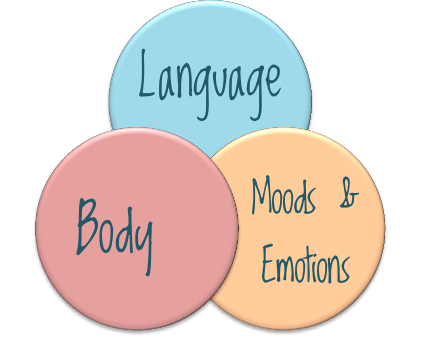Recovering meaning: language tools and sustainability
Listening to a passionate sustainability campaigner recently, I suddenly found myself back in class – more than a decade in the past. I was in my NLP Practitioner Training and we were talking about language. Whatever your background, if you’re into coaching you understand just how much the language we use limits our experience and the possibilities that we perceive.
Meta Model applications in business sustainability
So there I was, time-travelling back to 1998 and exploring the Meta Model – a toolkit for better understanding how thoughts are translated into words. I was learning in detail the ways in which we move from a thought to word s; we can lose information along the way; and how to recover that information and the powerful new possibilities that come with it. Some Meta Model structures include:
- Unspecified nouns and verbs;
- Incomplete comparisons;
- Judgments without standards;
- Unspoken rules of necessity and possibility
- Over-generalisations
- In-built assumptions
The particular structure that stood out for me at the time was the use of nominalisations. The passionate person on television was upset about how “business” and “government” weren’t doing enough for “sustainability” – three nominalisations in a row.
Can you put it in a wheelbarrow?
 When we turn a verb that describes an ongoing process into a noun, linguists describe this as a nominalisation (linguist is a nominalisation of linguistics – the process of studying language). The test for a nominalisation is “Can I put it in a wheelbarrow?” If you can’t put it in a wheel barrow, you’ve lost information – you’ve left out the process that’s happening behind your noun.
When we turn a verb that describes an ongoing process into a noun, linguists describe this as a nominalisation (linguist is a nominalisation of linguistics – the process of studying language). The test for a nominalisation is “Can I put it in a wheelbarrow?” If you can’t put it in a wheel barrow, you’ve lost information – you’ve left out the process that’s happening behind your noun.
“Business” is the process of swapping value between people in organisations through the exchange of money, products and services. “Government” is the process of governing – a town, a state, an institution or a country. “Sustainability” – well, that has a wide range of definitions. I’m more interested in “Regenerative Business” – the proven process of designing and delivering profitable products and services that are good for the eco-system as well as the customer.
The danger of nominalisations is that when you lose sight of the process you lose the ability to a) see it AS a process and b) work out how to influence the process. In their book “Introducing Neuro-Linguistic Programming”, O’Connor and Seymour suggest that “By turning processes into things, nominalisations may be the single most misleading language pattern” (p. 96)
And to me, that’s what I heard – that the passionate person I was listening to had lost sight of the processes behind the nouns “business”, “government” and “sustainability”. What could they have lost by doing this?
What’s the process hidden in “business”?
When we nominalise business, we lose sight of lots of things. Here are just a few:
- Visibility of business as a processes performed by people.
- Visibility of business as a cultural process, with many unconscious mental models still embedded in the nineteenth century.
- An understanding of the challenges that people in business can be subject to (e.g. The e-Myth).
- An understanding of corporations as groups of people – people that can be influenced in lots of different ways.
- An understanding of how many businesses are big corporations, and how many are SMEs responding as best they know how to corporate demands as they perceive them.
(The way to clarify a nominalisation is to turn it into a verb and ask for the missing information: “Who is doing business with whom to provide what products/services and how are they doing it?”)
Humans get things done through language
Whether we’re organising ourselves into action inside our heads, or organising something to get done in the world with a group, the better we use language the better our results (yes, NLPers, there goes an incomplete comparison).
So business development practitioners (whatever their background) can make a big contribution to a future where profitable businesses nurture and protect their finite eco-system while delivering satisfying products and services. This “sustainability” thing is primarily about working more effectively – as individuals and in groups.
Coach yourself about “the environment”
Take a little time for a self-coaching exercise. Without judging what you’re writing, spend 3-5 minutes writing down what you think about sustainability:
- What are you saying to yourself about sustainability?
- “Should” someone be acting?
- What “should” they be doing?
- What judgments are you making?
- What possibilities DON’T you see?
Then get out your preferred language tools (NLP meta model, ontological basic language acts, whatever). Read it back and analyse it. Are you missing out on what some consider “the greatest opportunity since the invention of money” because “it’s nothing to do with me”?
If you’re into coaching, you’re into living better, working smarter, thriving, etc. You’ve trained up on a whole lot of tools and services to help people make their personal and business worlds better. Don’t miss out on your sustainability opportunities because of ungrounded assessments or judgments you’re living in. Tune the filters on your Reticular Activating System to “opportunity” and see what’s out there.
Let me know what YOU find.






